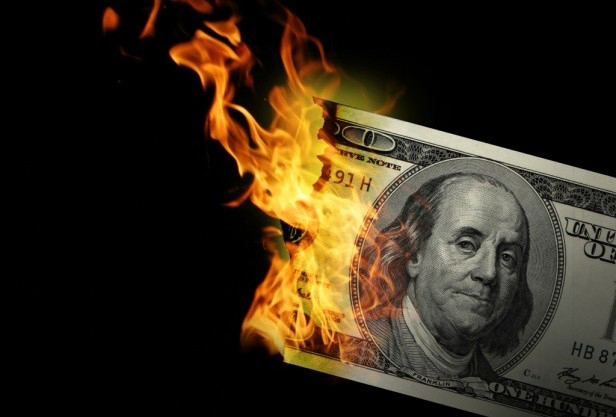| Online: | |
| Visits: | |
| Stories: |

| Story Views | |
| Now: | |
| Last Hour: | |
| Last 24 Hours: | |
| Total: | |
Peter Schiff On China’s Currency Devaluation and the Federal Reserve Board
FOR MORE NEWS BY VOICE OF REASON CLICK HERE!
In the video below, Peter Schiff tells us what ripple effects can be expected from China’s recent devaluation of the Yuan. It’s Peter’s belief that the Dollar is in a bubble, and when the American dollar finally does blow, then the Chinese will re-evaluate the Yuan. Schiff also gives his prediction on the potential for QE 4 here in America (since the first three have worked SOOO well), and then he gives his surprising prediction on who will win the currency wars taking place across the globe… Don’t forget just recently it was Gerald Celente Who Said Massive Market and Trade Instability Will Necessarily Cause World War III…
BE SURE TO GO MY PROFILE’S BELOW AT OTHER SOCIAL MEDIA:
FACEBOOK | TWITTER | PINTEREST | STUMBLE UPON | TUMBLE
Just to line up the bases, the basic story on China’s devaluation is that a reduced value of China’s currency against the dollar will make Chinese goods and services cheaper relative to goods and services produced in the United States. Other things equal, this means that we will export less to China and import more, thereby increasing our trade deficit. This will mean less growth and fewer jobs in the United States.
All of this should be fairly straightforward. The devaluation of China’s currency means less growth and jobs in the United States. It is also worth mentioning that the lower price of imported goods from China means that, other things equal, the rate of inflation will be lower.
These points are important to keep in mind when we consider the Federal Reserve Board’s meeting next month where many analysts believe that it is likely to raise interest rates. If the Fed raises interest rates, the ostensible motivation would be that it is worried that the U.S. economy was growing too quickly and creating too many jobs.
The argument is that rapid growth and a low unemployment rate create conditions in which we might see an increase in the inflation rate. If the Fed failed to step in, the concern is that the inflation rate would continue to spiral upward until it seriously disrupted the ability of businesses and households to plan for the future and make normal business decisions.
While the idea that we have to worry about dangerous levels of inflation any time soon might seem pretty far-fetched (the inflation rate has been well below the Fed’s 2.0 percent target for most of the last six years), the Chinese devaluation should further reduce any concerns in this area. It should mean both that the economy will be creating fewer jobs that had been expected and also there will be even less inflationary pressure than if China had not devalued its currency.
Since China’s devaluation has the same effect on the U.S. economy as a Fed rate hike, there really should be no reason for the Fed to move forward with its plan to raise rates, or at least not just now.
Unfortunately, we are not likely to see much change in the Fed’s plans. At least according to the business press, it doesn’t seem as though the Fed is about to put its rate hikes on hold. It may move ahead with higher interest rates even though the rationale has largely been removed.
FOR MORE NEWS BY VOICE OF REASON CLICK HERE!
BE SURE TO GO MY PROFILE’S BELOW AT OTHER SOCIAL MEDIA:
FACEBOOK | TWITTER | PINTEREST | STUMBLE UPON | TUMBLER
This should have people very concerned. If the Fed raises interest rates in the context of below target inflation and continuing weakness in the labor market, it would be neglecting its mandate to support high levels of employment. There was already reason for concern before China’s devaluation, there is even more reason for concern now.
There are a couple of other points about China’s devaluation that are worth noting. First many analysts had questioned the extent to which lowering the value of the dollar against China’s currency would improve our trade balance. The argument was that our trade with China somehow was not responsive to changes in relative prices.
This devaluation shows that the Chinese government does not agree with that line of argument. It may be wrong, but China’s government obviously believes that lowering the value of its currency relative to the dollar will improve its trade balance.
It’s also worth noting on this topic that a number of other countries moved their currency in step with China’s. This goes against the argument that with a higher valued Chinese currency we would simply shift our imports to other developing countries. In this case, many of China’s competitors deliberately followed the same path with their currency.
Finally, China’s move shows us that currency values really are simple. For years, the Obama administration has been telling its supporters that it would like for China to raise the value of its currency, but they just refuse to budge. This doesn’t sound very plausible.
A week ago China’s currency was about 4 percent higher relative to the dollar than it is today. Is there nothing that President Obama could have offered China to persuade it to not devalue its currency?
Suppose he said that he didn’t care about increased market access for the U.S. financial industry to China’s market, a longstanding goal in trade? How about if Obama said that he would not push for respecting Pfizer’s drug patents or Microsoft’s copyright on Windows?
Clearly there is some package of concessions that would have been sufficient to keep China from devaluing its currency. Or to put it more positively, we could construct a proposal with enough incentives to persuade China to raise the value of its currency against the dollar and move towards more balanced trade with the United States.
We have not seen a movement towards more balanced trade with China and other developing countries because it is not a priority of the Obama administration. In other words, the problem is not them, it is us.
Read the article at the Huffington Post here:
FOR MORE NEWS BY VOICE OF REASON CLICK HERE!
BE SURE TO GO MY PROFILE’S BELOW AT OTHER SOCIAL MEDIA:
FACEBOOK | TWITTER | PINTEREST | STUMBLE UPON | TUMBLER
THE VOICE OF REASON
- WEBSITE: http://thelastgreatstand.com/
- FACEBOOK: https://www.facebook.com/LastGreatStand
- GOOGLE PLUS: https://plus.google.com/u/0/+LastGreatStand
- TWITTER: https://twitter.com/#!/LastGreatStand
- TEA PARTY COMMUNITY: https://www.teapartycommunity.com/profile-151600/
- PATRIOT ACTION: http://patriotaction.net/members/TheVoiceofReason
- YOUTUBE CHANNEL: https://www.youtube.com/user/LastGreatStand/
- SEEN.IS: https://www.seen.is/members/home
- RIGHT.IS: http://right.is/contributor/pages/351/169/bio.html

FOR LINKS TO UNDERSTAND THE ECONOMY & THE COMING ECONOMIC COLLAPSE:
- Peter Schiff: Greece Was a Sideshow. Americans Need to Worry About Starving
- Gerald Celente Predicts Economic Collapse Means World War III (Video)
- Can You Imagine Empty Grocery Stores?
- Putin Makes Chilling Threat to Obama That Could Change Everything in the U.S.
- Gerald Celente: America Headed Towards Total Financial Collapse
- Peter Schiff: China and Switzerland is Killing U.S. Dollar
- So it Begins: The Bond Crash Looks to be Here, and Investors Are Panicking
- What Makes The Trans-Pacific Partnership So Bad? You Better Sit Down.
- Global Reset Coming! Central Banks Are Losing Control Of Financial Markets
- Deathblow to the Dollar – Even Our “Allies” Abandoning U.S.
- What Will Happen To You When The Dollar Collapses?
- Gerald Celente: “America Is A Collapsing Third World Country”
- Trouble Ahead: ‘Within One Year 9 Out of 10 Americans Would Be Dead’
- How Will the Dollar Crash Affect ME PERSONALLY?
- DOLLAR DOMINATION IS OVER!!!! – OMFIF Discusses Alternatives
- Gerald Celente: A Worldwide Panic Is Beginning And “There Is No Recovery”






China hacks into everything except Monsanto. Not cool.
Eat More GMO